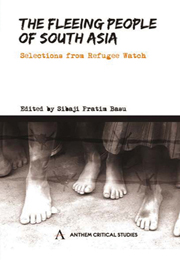Summary
The history of human civilizations is also the history of human displacements. Civilizations are both inclusive and exclusive. They foster a sense of unity among different social/cultural groups in given times and places; create loose yet culturally homogenizing identities, and, by the same token, alienate others, who could not be fit in the schemes of such homogeneity; identify them as ‘aliens’ and even ‘enemies’; and, in may instances, purge them from the so-called geopolitical territories of given civilizations, giving birth to ancient Greek words like ‘exodus’ and ‘diaspora’.
There have been displaced populations for millennia. We are told in the Exodus how the persecuted and enslaved Israelites fled Egypt. In the sixth century, persecuted Muslims fled Mecca for Medina in the Hijra and the fifteenth century saw the mass expulsion of Moors and Jews during the Spanish Inquisition.
However, in the contemporary world, World War II and its aftermath was the watershed event in the history of the refugee problem. The tragedy of forced exile still exists and is growing throughout the world, so the last century has in fact been described as the ‘century of refugees’. Many of them, like the Palestinians living in numerous camps, have endured this traumatic experience for years or even generations, without ever having known any other type of life. According to an estimate, there were about 22 million refugees in the world in 2001.
- Type
- Chapter
- Information
- The Fleeing People of South AsiaSelections from Refugee Watch, pp. xvii - xxiiPublisher: Anthem PressPrint publication year: 2009

